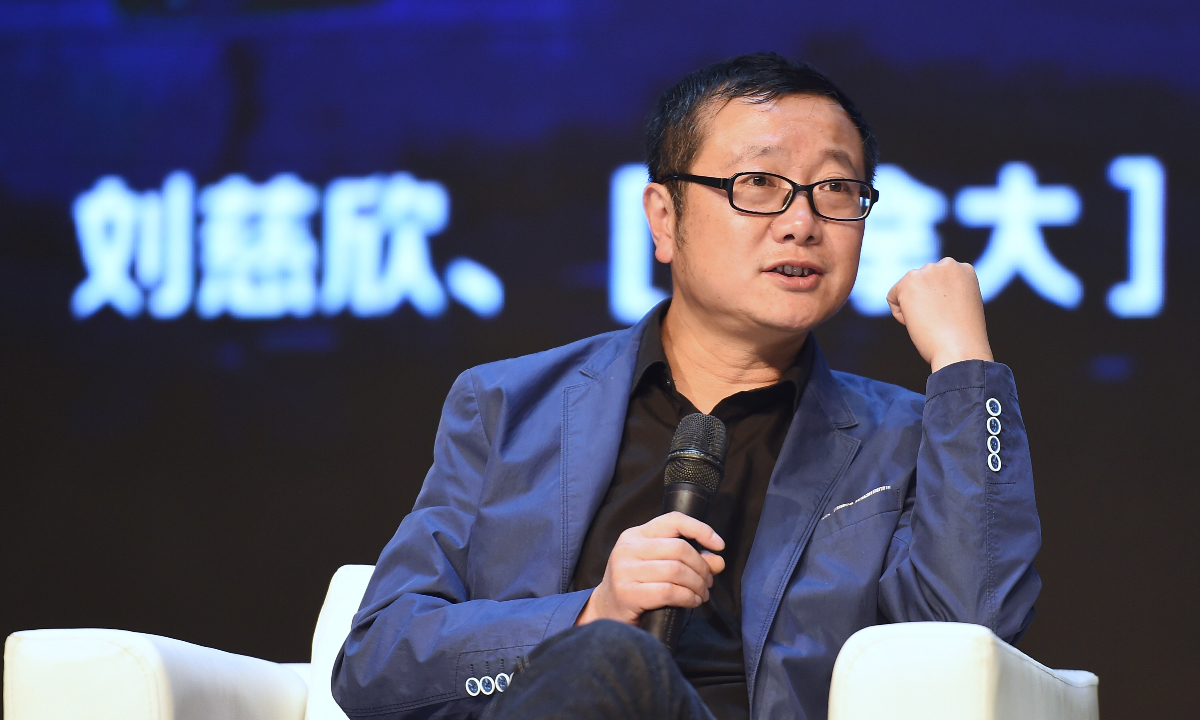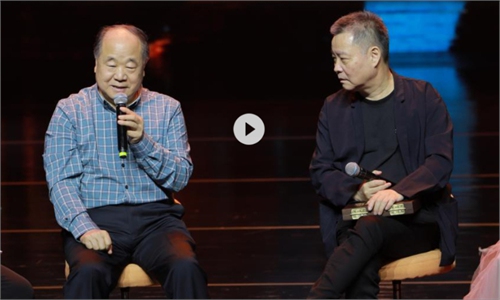
Liu Cixin Photo: IC
Renowned Chinese sci-fi novelist has praised ChatGPT’s competence in writing speech manuscripts for him and predicted the future of self-consciousness that artificial intelligence may one day develop.
Chinese novelist Liu Cixin, the author of the Three Body Problem and The Wandering Earth, as well as a Chinese Hugo Award winner, has revealed that he had recently resorted to ChatGPT to help him write one or two speech manuscripts for a science fiction conference, and it did quite a good job, according to a report by guancha.cn.
Liu made the comments during a livestreaming show hosted by the founder and chairman of New Oriental Education and Technology Group Yu Minhong.
He frankly acknowledged that despite the trope of of “AI ruling over humanity” is currently limited to the realm of science fiction, current artificial intelligence technologies have already generated a real world impact.
According to Liu, since he did not have enough time to write one or two speech manuscripts for the China Science Fiction Convention 2023 (CSFC 2023) held in Beijing between May 29 and June 4, 2003, he turned to ChatGPT for help and was impressed with the results. .
According to this situation, it may won’t need too long for some desk jobs to be replaced by artificial intelligence, Liu said during the livestreaming show.
At the CSFC 2023, Liu expressed his own views on the topic of “the thoughts and souls of artificial intelligence.”
He believes that it is merely a self-consolation when people say artificial intelligence does not have the soul and feelings of humans. In fact, human beings’ soul and feelings emerge from the complex systems formed by the connections of numerous neurons.
From this perspective, when artificial intelligence systems reach a certain level of complexity, it is not impossible for them to develop a form of “thought or soul” in terms of perception and cognition.
Liu believes that one day, artificial intelligence may be able to replace authors, both in sci-fi and other genres.
According to Liu, as long as artificial intelligence has sufficient computing power and access to complex data sets, it can simulate human thinking and emotions, and can generate texts in line with readers' preferences and market demands based on various rules and logic.
He also predicts that science fiction writers will not completely disappear in the future but will become non-mainstream, similar to today’s shadow play. He believes that sci-fi creation will always exist, but it will not be the kind of mainstream content that draws constant attention.
Liu is not the only Chinese writer who has been impressed by ChatGPT’s penmanship.
Chinese Nobel Prize winner Mo Yan revealed during the 65th anniversary of the Chinese literary bimonthly magazine Shouhuo (Harvest) in Shanghai on May 16, 2023 that he had sought the assistance of ChatGPT for help to write a commendation for another famous Chinese writer Yu Hua.
According to Mo, he struggled for several days trying to write one but failed, so he asked a doctoral student to use ChatGPT to write one for him. After he put in the key words including “To Live,” “extract a tooth” and “Wen Cheng,” the chatbot immediately created a prize citation of over 1,000 words, written in a Shakespearean style.
Mo’s open-mindedness about tech tools was applauded by the audience who let out an audible gasp of surprise when they found out that the Nobel Prize winner crafted his speech using artificial intelligence.
Global Times

